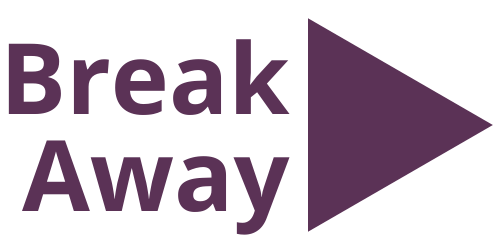Site Leader Syllabus
This syllabus includes 15 weeks of content including training themes, journal prompts, and suggested readings. Each week coincides with additional workshop content that is available for purchase.
Course Description
This course offers student leaders in the community engagement and alternative breaks campus movements exposure to foundational curriculum. The course is focused on both theoretical and practical understanding of university-community engagement. Students will engage with the learning components (education, orientation, and training), leadership/facilitation, reflection, identity consciousness, risk management, asset-based community development, ethical storytelling, strategic planning, reorientation, and systems change.
Course Objectives
As a result of this course, students will be able to:
Hone their personal leadership and facilitation style.
Demonstrate the necessary skills for facilitating a group of their peers in community-engaged learning and reflection.
Develop equitable, identity-conscious skills to create beneficial outcomes for both students and partnering communities.
Identify, create, and sustain mutually beneficial relationships between the university/college and partnering communities.
Name three common risks, and proactive strategies to lessen the risk of community-engaged learning and service.
Identity and engage with groups across the group development spectrum (e.g., norming, storming, performing, etc.).
Create reorientation plans and activities to connect students to their home communities and campus post-service experience.
Demonstrate an understanding of the interconnectedness of identity, power, and systems that benefit some and harm others.
This syllabus includes 15 weeks of content including training themes, journal prompts, and suggested readings. Each week coincides with additional workshop content that is available for purchase.
Course Description
This course offers student leaders in the community engagement and alternative breaks campus movements exposure to foundational curriculum. The course is focused on both theoretical and practical understanding of university-community engagement. Students will engage with the learning components (education, orientation, and training), leadership/facilitation, reflection, identity consciousness, risk management, asset-based community development, ethical storytelling, strategic planning, reorientation, and systems change.
Course Objectives
As a result of this course, students will be able to:
Hone their personal leadership and facilitation style.
Demonstrate the necessary skills for facilitating a group of their peers in community-engaged learning and reflection.
Develop equitable, identity-conscious skills to create beneficial outcomes for both students and partnering communities.
Identify, create, and sustain mutually beneficial relationships between the university/college and partnering communities.
Name three common risks, and proactive strategies to lessen the risk of community-engaged learning and service.
Identity and engage with groups across the group development spectrum (e.g., norming, storming, performing, etc.).
Create reorientation plans and activities to connect students to their home communities and campus post-service experience.
Demonstrate an understanding of the interconnectedness of identity, power, and systems that benefit some and harm others.
This syllabus includes 15 weeks of content including training themes, journal prompts, and suggested readings. Each week coincides with additional workshop content that is available for purchase.
Course Description
This course offers student leaders in the community engagement and alternative breaks campus movements exposure to foundational curriculum. The course is focused on both theoretical and practical understanding of university-community engagement. Students will engage with the learning components (education, orientation, and training), leadership/facilitation, reflection, identity consciousness, risk management, asset-based community development, ethical storytelling, strategic planning, reorientation, and systems change.
Course Objectives
As a result of this course, students will be able to:
Hone their personal leadership and facilitation style.
Demonstrate the necessary skills for facilitating a group of their peers in community-engaged learning and reflection.
Develop equitable, identity-conscious skills to create beneficial outcomes for both students and partnering communities.
Identify, create, and sustain mutually beneficial relationships between the university/college and partnering communities.
Name three common risks, and proactive strategies to lessen the risk of community-engaged learning and service.
Identity and engage with groups across the group development spectrum (e.g., norming, storming, performing, etc.).
Create reorientation plans and activities to connect students to their home communities and campus post-service experience.
Demonstrate an understanding of the interconnectedness of identity, power, and systems that benefit some and harm others.

